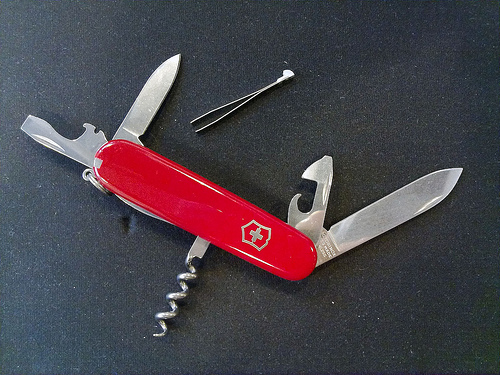
In his audio series, The Psychology of Selling, Brian Tracy tells the story of a top salesman who attributed his success to just one thing: affirmations. Just before the salesman went to meet with a client he would repeat to himself: “I am the best! I am the best! I am the greatest salesperson in this industry and in this country! I am the very very best!”
As a headhunter in Tokyo, I took this story at face value. Every time before meeting a candidate or client, I would repeat the same affirmations again and again until I felt sufficiently pumped up for the meeting.
These affirmations seemed to have helped when I was in a good mood, but when I wasn’t, the words seemed hollow, and often made me feel worse off than I had before. There was always a voice in the back of my head that said: how can I keep fooling myself?
Apparently, I wasn’t alone in my feeling that affirmations didn’t work. According to some recent research, affirmations only work for people who believe in them in the first place. If your fundamental beliefs run contrary to what you’re affirming, the affirmations will have no effect at all.
But don’t take my word for it, why not try it yourself? Go ahead and try this affirmation below. Don’t worry…nobody’s watching except ceiling cat.
After saying these words a couple times, do you feel particularly bloodthirsty? Do you feel confident that you can breathe in the vacuum of space? Does your reflection seem a little less clear when you look in the mirror?
If you said “yes” to any of these, let’s just say that I’m happy I’m typing this miles away from you with a garlic wreath around my neck.
I’m assuming that most of you didn’t feel a single bit more vampirish after saying this affirmation. The thought that you’re a space vampire is so ridiculous that saying it might make you snicker a little, but not much more than that. It’s so removed from your current perception of reality that you could never take it seriously, even if you say it a million times.
The same thing goes for positive affirmations. If you say a positive affirmation but your beliefs run contrary to it, it’ll most likely have the same effect as saying the affirmation above. If you hold the limiting belief that nobody likes you and you continue to repeat the affirmation that everyone likes you, you’ll get depressed telling yourself something that you don’t believe in.
Most of us don’t want to admit to ourselves that we have limiting beliefs. We don’t want to admit that we believe we are unimportant, that we believe we’re not good enough, that we believe that nobody likes us. We don’t want to admit to ourselves that we have these beliefs because we know that on an intellectual level they aren’t true. We may have limiting beliefs, but we tend to deny they exist because we know they’re illogical, negative, and just plain wrong.
If we continue to deny that our limiting beliefs exist, however, they will persist. It’s important that we recognize and accept that we have these beliefs in order to get rid of them.
How can we admit to ourselves that we have limiting beliefs? The Lefkoe Method, which is a system for eliminating limiting beliefs (say that ten times fast!), suggests using a negative affirmation. Negative affirmations work in very much the same way that positive affirmations do; if you don’t believe in them, they have no power over you, and will feel just as empty as the space vampire affirmation. If you feel confident that you have no limiting beliefs, then you should feel no sense of discomfort when saying any of the following affirmations aloud:
Nobody Likes Me
I’m an idiot
I’m not important
I’m not strong enough
Nothing’s worth the effort
I’ll never win a hot dog eating contest
If you felt a sense of unease saying any of the above affirmations, that’s a sign that you’ve been harboring that particular limiting belief. You may not want to have that belief, and you may know it’s wrong on an intellectual level, but you still have it.
Although it might not feel great to know that you have the belief that nobody likes you or that nothing’s worth the effort, the good news is is that you’ve already taken the first step in overcoming the belief: admitting you have it.
It is important to remember that you created this belief, and since you had the power to create it, you most certainly have the power to let it go. Every time you have a negative thought all you have to do is remember the limiting belief that is the source of that negative thought. When you do, the thought will lose its substance.
My Personal Experience With the Lefkoe Method
When I tried out the Lefkoe Method, the limiting belief that I worked on was : I’m not important. On an intellectual level I believed that I was important, that I could do anything, and could change the world, but after I said “I’m not important” and felt the discomfort that came from saying it, I realized that I still, at a subconscious level, believed that I wasn’t important.
I then began to see how this limiting belief had affected me in the past. Every time I wasn’t invited to a party or a client didn’t return an email I would instantly have a negative thought that sprung from this belief. Every time people celebrated my achievements I dismissed them as flattery, thinking that these people probably wanted something out of me.
I didn’t want to have these negative thoughts. I knew they were irrational, but they just kept coming to me like a reflex.
After using the method, it feels as though this belief has gone completely. When people ignore me, my explanation for why they do so is much more positive than before. Instead of thinking “That person must think I’m not important.” I now think “Maybe he/she was busy that day” or, “Maybe that’s how he/she treats everyone.” Conversely, when I receive a complement, I find that I can accept it much more easily because I know, at a deep level, that I’m important enough to receive complements. As far as my sense of self-importance is concerned, I no longer have to force myself to try to see things in a positive light. I just do.
Now, when I say the words “I’m not important,” they seem as hollow and empty to me as “I’m Space Vampire.” Conversely, when I say the words “I am important,” I get a little boost of positive energy because I actually believe the words. No longer do the words feel hollow.
If you have 30 minutes to spare, I highly encourage you to try out the Lefkoe Method yourself . The web page this links to turned me off at first because it asked me for my email address without giving any indication of the value I’d receive for doing so, but after reading other testimonials across the web I decided to try it out.
I must say that I was pleasantly surprised how much value they’re giving away for free. In fact, just by knowing how the method works for one limiting belief you can work to eliminate many others without buying their full program. It makes me wonder how these guys stay in business.



